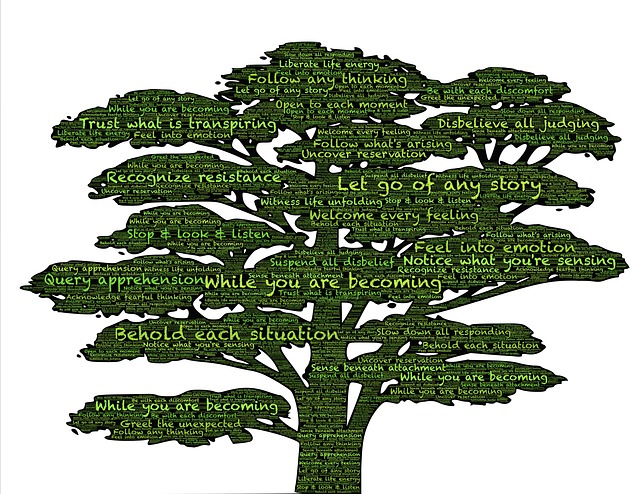Daniel Goleman, in his interview for the online Mindfulness at Work Summit in June 2018, introduced what he calls the 12 competencies of emotional intelligence. He has recently rethought the emotional intelligence framework and now has four main groups of competencies (instead of the original five) – (1) self-awareness, (2) self-management, (3) social awareness and (4) relationship management – and 12 competencies that sit under the various groupings. Emotional self-awareness is the sole competency listed under the first grouping.
Understanding “emotional intelligence”
In the interview with Mo Edjlali, President of Mindful Leader, Daniel explained that the term, “emotional intelligence”, challenges people to think about dealing with emotions intelligently, not being under their control nor ignoring them. He maintained that emotions are “part and parcel” of life and that whatever we do, even if we think we are being rational or analytical, emotions underpin our choices – our thoughts and actions.
This was brought home to me in a recent conversation with a colleague who was describing a number of actions she had taken to help a homeless person she met when interstate. She had spoken to this person and got to know their domestic violence situation and decided to provide the person with a meal. This led to helping her in other ways including providing a particular style of footwear required for a job the person was applying for. After sharing the story, my colleague then identified the emotions she was feeling as a result of her decision and her compassionate actions. She was asking herself, “For whose benefit am I doing this?”(uncertainty), “Am I doing this because it makes me feel good?”(doubt), and “What expectations am I creating in this person and can I meet them?”(fear/anxiety).
So, to achieve anything, whether improved productivity or compassionate action, we need to be able to intelligently manage the emotions involved. Daniel mentioned that in recent workshops in Nashville and Romania, different organisations and different countries, participants realised that when they talk about the characteristics of their best and worst bosses, they are talking about dimensions of emotional intelligence. My colleague and I have undertaken this exercise with over two thousand managers over more than a decade in our Confident People Management Program, and we have found that people intuitively know what are the characteristics of the best and worst managers and can identify their own feelings when working for either category of manager. There is remarkable unanimity across multiple groups in multiple locations. The characteristics could be readily matched to Daniel’s 4 groupings and the 12 competencies of emotional intelligence. Emotional self-awareness is the first and foundational competency described by him.
What is “emotional self-awareness”?
If you have “emotional self-awareness” you have developed awareness about some personal aspects such as:
- what you do well and what you do not do well
- what you are feeling and why you are feeling that way
- how your feelings impact your thoughts
- how your feelings and thoughts impact your performance
- why you are doing what you are doing or being able to answer, what am I doing this for? – your purpose/meaning.
Emotional self-awareness underpins everything because it is the gateway to self-improvement – in all its mutliple aspects, including acquiring the other emotional intelligence competencies.
Daniel suggests that you may not achieve complete emotional self-awareness if you rely on mindfulness alone. He argues that because of the internal and individual focus of mindfulness, you may be unaware of blind spots. He suggests that mindfulness in combination with 360-degree feedback can help you to identify and act on these blind spots or hidden gaps in emotional intelligence competencies. He has developed, with his colleague Richard Boyatzis, an Emotional and Social Competence Inventory (ESCI 360) as a 360-degree feedback instrument to measure the twelve emotional intelligence competencies and to enable identification of blind spots in relation to the competencies.
As Daniel acknowledges, a competent coach can also help in this area of developing accurate emotional self-awareness. I recall coaching a manager where his blind spot was defensiveness and it was only after providing persistent and constant feedback over a few months that he finally accepted that he was being defensive. He was then able to demonstrate emotional self-awareness by pulling himself up whenever he started to get defensive and, in the process, name his feelings. Mindfulness can also help us to accept feedback that is uncomfortable but accurate.
Another route to developing emotional self-awareness and overcoming blind spots is participation in an action learning group where the group norm is “supportive challenge” and feedback is designed to help you be the best you can be and to achieve the best outcomes for your project and yourself. The action learning set may be less contaminated by political considerations (such as fear of repercussions) or revengeful action, than a 360-degree feedback process. The honesty norm underpinning action learning may also help to ensure that the feedback is uncontaminated.
As we grow in mindfulness and engage with others through feedback we can develop increased emotional self-awareness and be able to act on the feedback given.
By Ron Passfield – Copyright (Creative Commons license, Attribution–Non Commercial–No Derivatives)
Image source: courtesy of johnhain on Pixabay
Disclosure: If you purchase a product through this site, I may earn a commission which will help to pay for the site, the associated Meetup group and the resources to support the blog.
